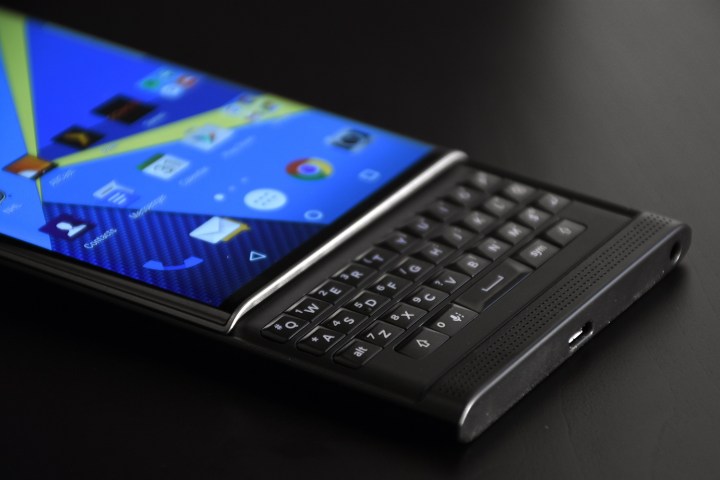
This week the company announced its high-end Android handset is getting a price cut, fueling further speculation that the Priv isn’t selling as well as the company hoped it would.
The phone, complete with its iconic keyboard, which in the Priv’s case slides in and out of view, will now cost $649 in the U.S., marking a $50 discount.
U.K. consumers see the price drop from £569.99 to £529.99, while interested buyers in France, Germany, Italy, Spain, and the Netherlands can nab it for €729, down from €779. Interestingly, the Canadian company has chosen not to discount the phone in its home country, where it remains at CAD$899.
Currently available in 34 countries around the world, BlackBerry has been adopting various tactics in a bid to whip up some interest in its debut Android device. In February, for example, it launched a $700 bundle that besides the phone included a black leather Smart Flip Case featuring a small window for viewing notifications and carrying out calls with the cover closed, and a Sync Pod that acts not only as a charging dock but also as a device for data transfer between the Priv and a computer. That deal’s finished, although a separate offer running for a few more days this month has the same items discounted by up to 30 percent.
BlackBerry’s decision to launch its first ever Android phone was essentially a last-ditch bid to rescue its handset business after years of declining sales in the wake of stiff competition from the iPhone and Android devices.
Chen, who’s been steering the ship since taking over from Thorsten Heins in November 2013, has been busy refocusing the business toward software and services, though it may push out a couple more Android smartphones before the end of the year.
However, financial figures released by the company last week showed further decline in hardware revenue, prompting Chen to suggest that if its phone business doesn’t turn a profit by September, he’ll have to seriously consider exiting the sector to save the rest of the company.

